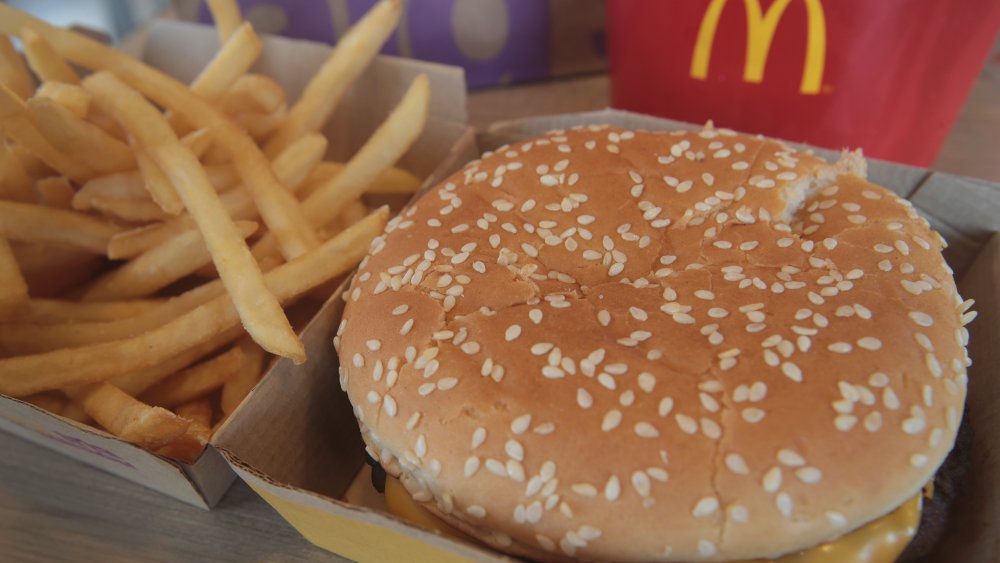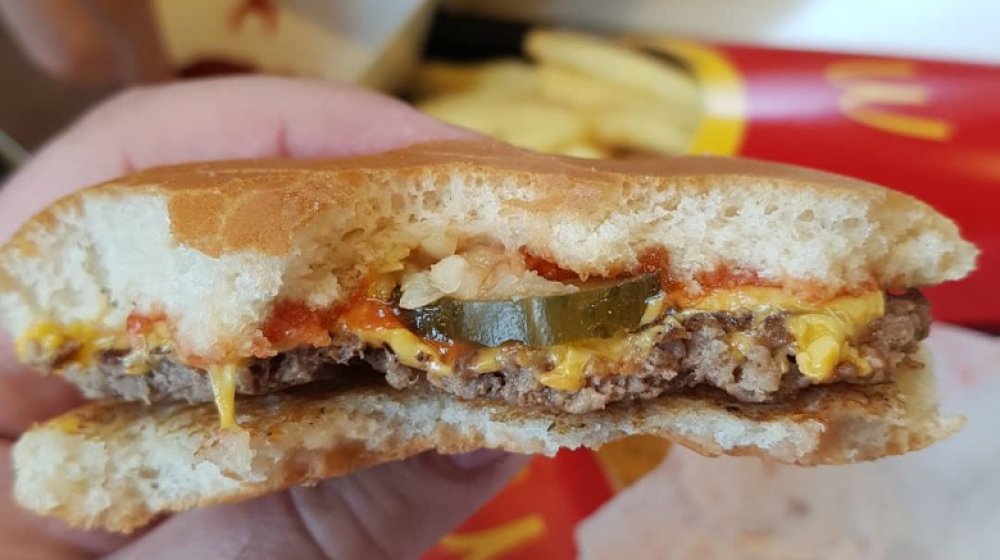This Is The Only Artificial Part Of A McDonald's Burger
McDonald's burgers are so widely eaten that economists have developed a way to compare the cost of living in different countries based on the price of a Big Mac (via The Economist). It's called the Big Mac Index. They're so popular that there's an official World Record awarded to the person who can eat the most of them in one sitting. In March 2020, Joey Chestnut won it for eating 32 Big Macs in 38 minutes (via Sports Illustrated). McDonald's burgers have such a following that when something goes wrong with them, the world has a mini panic attack.
That's approximately what happened in 2013, when a Utah, resident David Whipple, went viral for having accidentally stored a hamburger in a coat pocket for two years and then intentionally holding onto it for about a dozen more years (via Business Insider). During that time, he saw no indications of decomposition. It was only missing a pickle. McDonald's claimed that the burger's longevity resulted from how dry the ingredients become when cooked. But in the what-the-heck-is-in-a-McDonald's-burger global aftermath, the company apparently did some soul searching.
By 2014, the fast-food giant had announced its commitment to changing ingredients and cooking methods on food items across their menus (via McDonald's). Just four years later, it trumpeted success, announcing that all McDonald's classic burgers were now being made with "no artificial preservatives, no artificial flavors and no added colors from artificial sources." Every single ingredient except (maybe ironically) the pickle.
Are pickles really the only artificial part of a McDonald's hamburger?
McDonald's removed artificial preservatives from their buns, their Big Mac special sauce, and their processed American cheese. It did not manage to remove the preservative, potassium sorbate, from its pickles. Here's the good news. Potassium sorbate is a synthetically produced bacteria-fighting chemical whose toxicity similar to table salt's: close to nothing (via Honest). It's FDA-approved as a substance "generally recognized as safe when used in accordance with good manufacturing practice." As Livestrong notes, documented side effects are mostly old and have been traced to the chemical's use in self-care products rather than food.
Like McDonald's says, "skip [the pickle] if you like." While you're at it, consider skipping the packaging. While no other part of McDonald's classic burger line is "artificial," Big Mac boxes are. A July 2020 study run by Mind the Store and Toxic-Free Future uncovered detectable level of PFAS — impossible to break down "forever chemicals" — in them (via The Guardian and The Counter). Scientists are still studying the effects of exposure to PFAs, but The Agency for Toxic Substances and Disease Registry lists an increased risk of kidney and testicular cancer, decreased vaccine response in children, and changes in liver enzymes among its health effects. Of course, as David Andrews, senior scientist for the Environmental Working Group, told The Guardian, PFAs are everywhere and "it's nearly impossible to escape contamination." A fast-food box or two? They may not make all that much of a difference.

